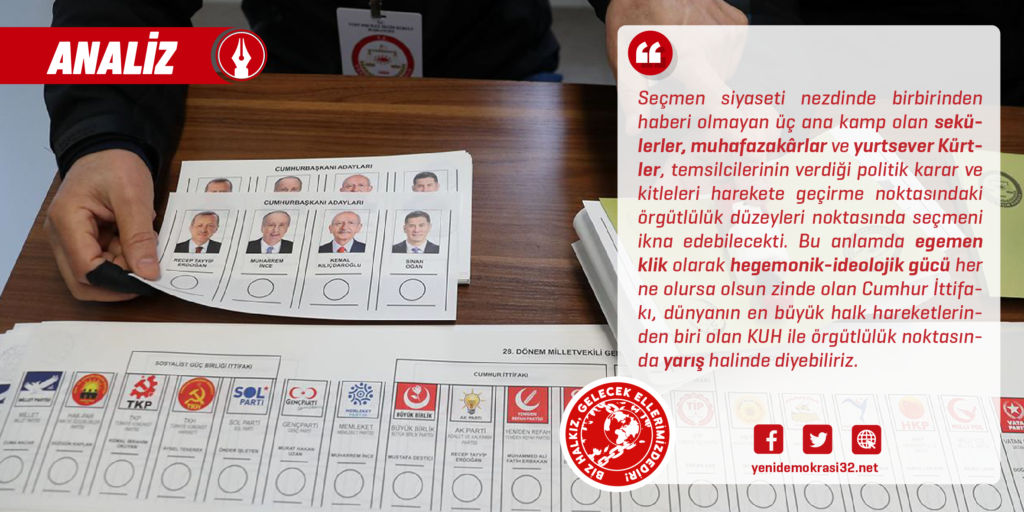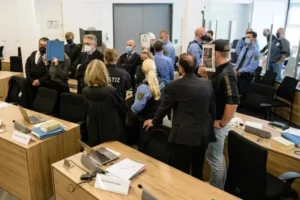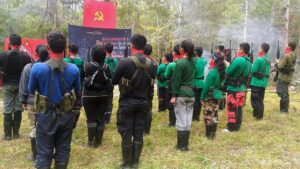
Analysis of the Presidential Election in Turkey
On the 1st of June an analysis of the presidential election in Turkey was published by the Turkish newspaper Yeni Demokrasi (New Democracy). The analysis looks at the development of the parties of the ruling classes, the situation of the masses, the position of the Kurdish National Movement and the “Labour and Freedom Alliance”, and of the boycott stance.
We have previously reported on the elections in Turkey where the current Turkish President Erdogan won the second round with 52 percents of the votes after failing to get the majority of the votes in the first round. We have also reported on the boycott campaign against the Turkish elections.
Regarding the parties of the ruling classes, the analysis concluded that there was no new developments. The main parties of the ruling classes are the AKP headed by Erdogan and the CHP headed by Kılıçdaroğlu. The analysis states that both of these parties are based on the same classes, the comprador bourgeoisie and the big landlords.
It is explained that the National Alliance headed by the CHP had a deterministic interpretation that the situation in country, with the Government’s handling of the earthquake and the economic crisis, would lead to Erdogan losing the election. They managed to get support from a large amount of parties, including the HDP, TİP, TKP and Left Party. Their assumption proved wrong as they still failed to win the election, with Erdogan even winning in the areas affected by the earthquake.
Regarding the Kurdish National Movement, the analysis first highlights its importance as one of the largest popular movement in the world, that combines legal and illegal organization. The largest party of the Kurdish National Movement is the HDP, which is the third largest party in the Turkish parliament. The HDP gave its support to Kılıçdaroğlu in the presidential election, and handed him the victory in the areas dominated by them. In the second round the participation in these areas decreased by around 500 thousand, even as the HDP maintained their support for Kılıçdaroğlu
In the parliamentary election the HDP experienced a decrease in votes compared to the last election, but their number of deputies did not change a lot.
The presidential election had a participation of 87% in the first round and 84% in the second. The analysis explains this high participation with that the people with a lack of democratic rights are only presented with the option of voting every five year. The analysis points at strengthening the propaganda of the boycott campaign, taking into consideration the other democratic rights that have been taken away from the people.
The analysis also points at the need to know the masses who vote for Erdogan and the AKP better:
“In any case, the analyzes and predictions we have made over the elections show that we do not know the AKP voters in particular. First of all, if we have a problem with the masses that makes up half of the country, if we are going to need these masses for the revolution, it is essential that we reconsider our way of thinking and naturally, our way of life.”
The analysis concludes with that “excluding religious and conservative areas in daily life, undoubtedly shows us the impossibility of influencing these areas”, and that they should get rid of old habits and improve the style of work in order to get to know this segment of the masses.

